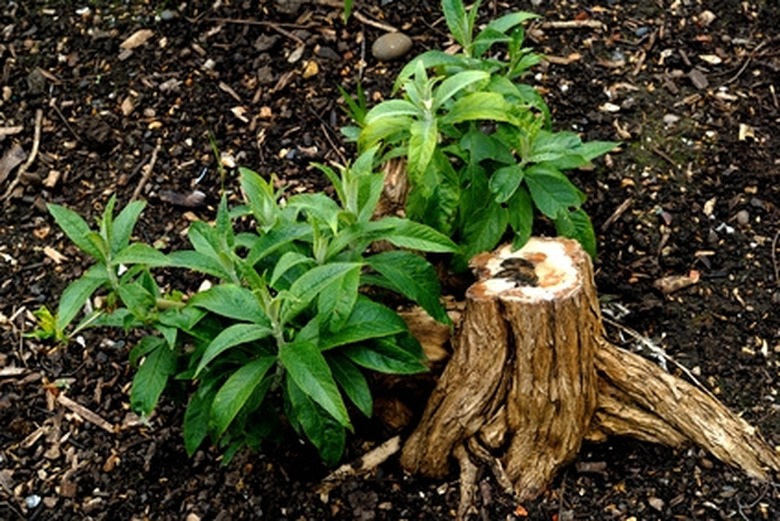How Does Soil Affect The PH Of Water?
Acidic vs. Alkaline
When soil and water meet, their acidity levels interact and combine to influence both. Ultimately, the water drains away and the soil assumes a slightly different acidic content. The acidity of the soil is very important, since how acidic or alkaline a soil is governs what kind of plants can grow there and how easily roots can extract the necessary nutrients to survive. In both water and soil, acidity is measured according to the pH scale, a negative logarithmic scale where values increase times ten per whole digit increase or decrease. The middle of the scale is 7, where the pH level is neutral (like pure water). Higher pH levels indicate alkalinity and lower levels indicate acidity.
The pH level is naturally changed by encounters with other materials. In the encounters between water and soil, soil is generally the most changed of the two, while water tends to stay the same or be purified by its encounter, moving closer to a neutral pH level.
Interactions with Soil
Interactions with Soil
When water vapor forms into clouds and moves into its rainfall phase, it combines with many different particles that are floating in the atmosphere. Some of these particles have very little effect on the rain, while others can adjust its chemical properties slightly. Certain acidic particles can combine with the water and give it a lower overall pH level. When this water falls as rain, it encounters other substances, notably the soil it eventually trickles down into.
Soil naturally holds minerals that are alkaline in nature, traces of limestone and other types of rock that possess similar qualities. When the acid particles of the falling water encounter these minerals, a chemical reaction occurs that neutralizes the acidity of the water but also neutralizes the minerals. This increases the acidity of the soil, but levels the water largely neutral in acidic content as it makes its way down to the water table.
Heavy Rainfall
Heavy Rainfall
In areas that experience heavy rainfall, the water tends to wash away alkaline element or neutralize them with chemical reactions. In this case, if a large amount of acidic water falls into the soil, it may not lose all of its acidic qualities and contribute to a lower overall pH level of the nearby water supply. However, most acidic elements in water are neutralized by encounters with bedrock even in the soil cannot handle them.
Cite This Article
MLA
Lacoma, Tyler. "How Does Soil Affect The PH Of Water?" sciencing.com, https://www.sciencing.com/soil-affect-ph-water-5610824/. 24 April 2017.
APA
Lacoma, Tyler. (2017, April 24). How Does Soil Affect The PH Of Water?. sciencing.com. Retrieved from https://www.sciencing.com/soil-affect-ph-water-5610824/
Chicago
Lacoma, Tyler. How Does Soil Affect The PH Of Water? last modified March 24, 2022. https://www.sciencing.com/soil-affect-ph-water-5610824/
